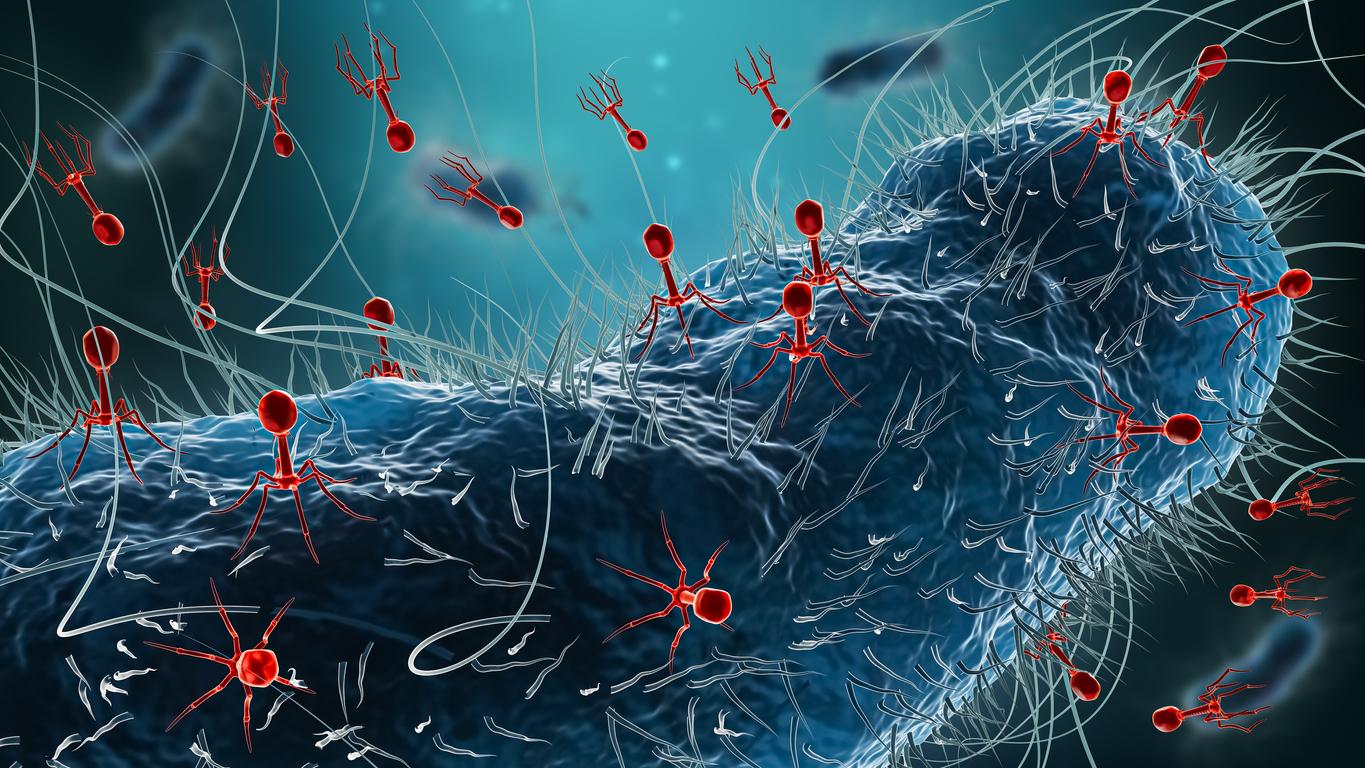Researchers have developed a “disinfectant spray” to protect our food from contamination with E.Coli bacteria.

- Escherichia coli (E. coli) is a bacterium responsible for sometimes bloody diarrhea, abdominal pain and vomiting, according to the Institut Pasteur.
- In its severe form, this bacterium produces a powerful toxin that causes the potentially fatal haemolytic uraemic syndrome (HUS), according to the WHO.
While product recalls due to E.Coli contamination are not uncommon, researchers at McMaster University (Canada) may have found a surprising way to combat this dangerous bacteria. They have indeed developed a vaporizer containing anti-microbial viruses.
The spray helps to destroy pathogens on food
The authors of the study, published in the journal Nature Communications, believe that “their disinfectant spray” is both food safe and highly effective, thanks to the assembly of bacteriophages (also called phages) – harmless viruses that feed on bacteria – in the form of microscopic beads.
“These beads can be safely exposed to food to eliminate dangerous pathogens such as E. Coli 0157. The beads are incredibly small, measuring approximately 20 microns (one fiftieth of a millimeter) in diameter, yet they are packed with millions of phages”, explain the authors.
This invention has been effectively tested on foods such as beef and lettuce; two very common sources of E.Coli outbreaks.
Phages have unique characteristics to fight against microbes
Phages are present naturally, both in the environment and in the body. When they come into contact with targeted bacteria, they multiply, which exponentially increases their anti-microbial power: “It’s a chain reaction, creating a dynamic, ongoing response that’s even more powerful than antibiotics.“, explains Professor Tohid Didar, holder of the Canada Research Chair in Nanobiomaterials. “No other anti-bacterial product – not even bleach – has the special properties of phages.“Part of their advantage is that they don’t impact beneficial bacteria that improve the taste, smell and texture of food.
The study authors anticipate that a version of the phage spray may be available in the near future and that the same approach can be taken against other bacteria that cause food poisoning, such as Salmonella and the Listeria.

















